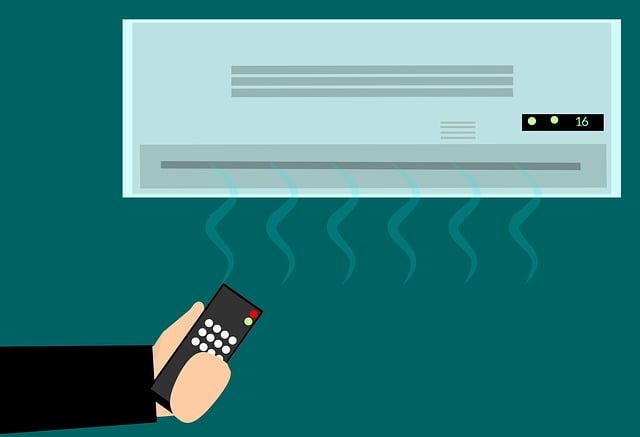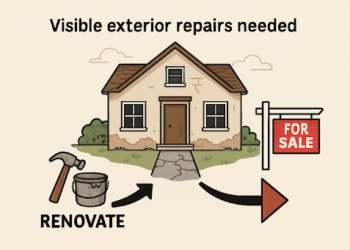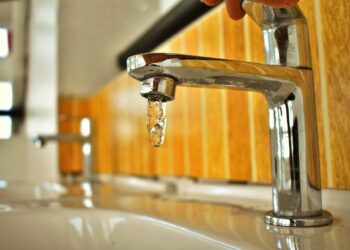Regardless of where you live, the only thing that’s certain is that it will get hot at some point during the year. To combat those sizzling temperatures, most homeowners rely on their air conditioning systems. But how long should these systems last?
Your air conditioning system’s lifespan typically ranges from 10 to 15 years, but several factors can affect it. Proper installation, climate, and maintenance play crucial roles. Recognizing signs of aging, such as decreased efficiency and unusual sounds, is essential. Regular maintenance, including cleaning, filter replacement, and professional servicing, can help extend your AC unit’s life, keeping you comfortable for years to come.
In this post, we’ll discuss how long air conditioners typically last as well as key factors that can affect the lifespan of your AC. We’ll also provide advice on how to extend the life of your air conditioner and explain why regular maintenance and servicing are so important. Read on to learn more!
The Lifespan of Your Air Conditioning System
The lifespan of your air conditioning system largely depends on various factors, but in general, you can expect it to last between 10 to 15 years. However, this estimate can vary significantly based on factors such as the quality of installation, the unit’s size and type, and the local climate conditions.
Well-maintained and appropriately sized systems tend to last longer, while extreme heat or heavy usage can shorten the lifespan. Understanding your system’s typical longevity can help you plan for maintenance and eventual replacement, ensuring you stay comfortable in your home for years to come.
Factors Affecting AC Lifespan
Your air conditioning system’s longevity isn’t solely determined by its manufacturing quality. Several factors come into play, influencing how long your AC unit will last. Understanding these factors can help you maximize its lifespan and make informed decisions regarding maintenance and replacement.
Surroundings
The surroundings in which your air conditioning system operates can have a significant impact on its lifespan. If your AC unit is constantly exposed to dirt, dust, and debris, it can lead to clogged filters, reduced airflow, and increased strain on the system. It is important to keep the area around your AC unit clean and clear to ensure optimal performance and longevity.
Humidity
Humidity levels can also affect the lifespan of your air conditioning system. High humidity can cause excess moisture buildup in the unit, leading to mold and mildew growth, which can damage components and reduce efficiency. On the other hand, low humidity can cause dryness and strain on the system. Maintaining balanced humidity levels in your home can help prolong the life of your AC unit.
Run Time
The amount of time your air conditioning system runs each day can impact its lifespan. Continuous operation can put a strain on the components, leading to wear and tear over time. It is important to have proper insulation, effective temperature control, and efficient usage habits to prevent unnecessary strain on your AC unit.
Installation Quality
The quality of the installation process can significantly affect the lifespan of your air conditioning system. Improper installation can lead to issues such as poor airflow, inadequate cooling, and increased energy consumption. It is crucial to hire a professional HVAC technician from HVAC Winnipeg who is experienced in proper installation practices to ensure optimal performance and longevity.
Maintenance
Regular maintenance plays a vital role in extending the lifespan of your air conditioning system. Neglecting routine maintenance tasks such as filter cleaning, coil cleaning, and lubrication can lead to decreased efficiency and premature wear of components. It is recommended to have your AC unit serviced annually by a qualified technician to identify and address any potential issues before they escalate.
Furthermore, when considering the factors influencing the lifespan of your AC system proactive maintenance, including reliable AC repair in Boerne, TX, becomes pivotal in preserving its longevity and ensuring optimal functionality.
Signs of an Aging AC System
As your air conditioning system ages, it may exhibit various signs of wear and tear. Recognizing these symptoms is crucial for timely maintenance and, when necessary, replacement. Here are key indicators that your AC unit might be showing its age:
- Reduced Cooling Efficiency– One of the first signs of an aging AC system is reduced cooling efficiency. Your unit may struggle to maintain your desired temperature, taking longer to cool your space or failing to reach the set temperature.
- Increased Energy Bills– An aging AC system tends to be less energy-efficient. If you notice a significant spike in your energy bills without changes in usage patterns, your AC might be working harder and consuming more energy to produce the same cooling effect.
- Unusual Sounds– Unusual or loud noises like rattling, grinding, or squealing when the AC operates could indicate issues with worn-out or damaged components, such as the fan motor or belts.
- Frequent Breakdowns– If your AC system requires frequent repairs and you find yourself calling for service more often than in the past, it may be a sign that it’s approaching the end of its lifespan.
- Inconsistent Cooling– Inconsistencies in cooling throughout your space, with some rooms feeling warmer or cooler than others, could indicate problems with the distribution of cooled air.
- Refrigerant Leaks– Refrigerant leaks are a common issue in aging AC systems. Reduced refrigerant levels can affect cooling performance and lead to potential compressor damage.
- Visible Wear and Tear– Examine your AC unit for visible signs of wear, including rust, corrosion, or damaged components. These physical indicators can signal that your system is aging and may require attention.
- Foul Odors– Unpleasant odors, such as mustiness or a burning smell, can be indicative of mold growth, clogged ducts, or overheating components within the AC system.
Extending the Life of Your Air Conditioner
Extending the life of your air conditioner is possible through diligent maintenance and thoughtful practices. Regularly changing or cleaning filters, scheduling professional check-ups, and ensuring proper sizing and installation are key steps.
Additionally, maintaining consistent and energy-efficient temperature settings, promoting adequate airflow, and protecting your unit from environmental factors can significantly enhance its longevity. Timely repairs and addressing issues promptly also play a pivotal role. By adopting these measures, you can not only prolong your AC’s lifespan but also maximize its efficiency and cost-effectiveness in providing comfortable indoor climates for years to come.
Maintenance and Regular Servicing
Maintenance and regular servicing are essential practices to ensure the longevity and optimal performance of your air conditioning system. Regular maintenance tasks, such as cleaning or replacing filters, lubricating moving parts, and inspecting electrical connections, prevent dirt buildup, reduce strain on components, and maintain energy efficiency.
Additionally, professional servicing by HVAC experts helps identify and address potential issues before they escalate, ensuring the system operates smoothly. Consistent maintenance not only extends your AC unit’s lifespan but also enhances indoor air quality, reduces energy consumption, and ultimately saves you money on repair costs and utility bills. https://ultimateairductcleaning.com
In conclusion
The lifespan of your air conditioning system largely depends on various factors, including proper installation, climate conditions, and maintenance. Understanding these factors can help you maximize its longevity and stay comfortable in your home for years to come.
Regular maintenance and professional servicing are essential practices that can extend the life of your AC unit and ensure optimal performance. With the right care and attention, you can keep your air conditioning system running at peak efficiency for years to come.







